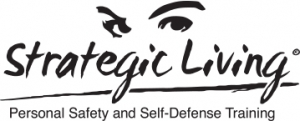What Every Woman and Girl Needs to Know about Dating / Domestic / Intimate Partner Violence and Abuse
Not-So-Fun Facts:
Intimate partner and dating violence often begins with slow, even seemingly playful, power and control games. It usually escalates over time, and soon it’s no longer cute or flattering. Over time it may become dangerous, even life-threatening.
An abuser often works to isolate their partner from all kinds of support. Physical, social, and financial isolation serve to keep you from leaving. That means you may have few, if any, friends, and little contact with family.
Intimate partner violence is planned. It’s not that the abuser simply cannot control their temper. The abusive person wants power over you, and has learned a variety of behaviors (see list below) to control your actions.
How to ID Abuse:
Does your partner:
- Criticize or humiliate you?
- Yell at you for little things?
- Tell you that s/he’s jealous only because they love you so much?
- Try to prevent you from seeing family or friends?
- Get angry if s/he sees you talking to a friend?
- Call and text you all hours of the day and night?
- Rummage through and read your personal mail, email, diary, financial transactions, or text messages to and from others?
- Try to control your money?
- Damage or destroy your stuff?
- Force you to have sex when you don’t want to?
- Push you to drink alcohol or take drugs?
- Slap, push, punch, or bite you?
- Blame you for their poor behavior towards you?
Do you often feel:
- Afraid of your partner?
- That you can’t do anything right?
- Stupid?
- Emotionally numb or overwhelmed?
- That you’re going crazy?
If You Recognize That You’re Being Abused:
Know you did not cause the abuse. Seek help from battered women’s advocates (look below for resources). Create a safety plan. Find supportive people among your friends and family. Plan where you could go if you needed to escape, and what you’d need to bring. Know that you may involve the police or courts at some point. In addition to a good advocate, you may need a good lawyer and a good therapist.
If You Believe Someone You Care About is Being Abused:
ASK. Find a private moment. Tell her what you’ve observed that worries you. Tell her that if she ever wants to talk about it, you’re there for her (remember, abusers try to create isolation — work to break it). Support her choices (abusers try to deny their victims free choice). Let her know you don’t believe it’s her fault, regardless of what the abuser says (and really believe it yourself). Say she deserves to be treated well. Don’t pressure her to leave, that takes time. Contact a battered women’s hotline — advocates on the other end are there to counsel not only battered women but those who care about them.
Seattle Area Resources:
DAWN – South King County (www.dawnrising.org) 425-656-7867
New Beginnings – Seattle (www.newbegin.org) 206-522-9472
NW Network for Bisexual, Trans and Lesbian Survivors of Abuse (www.nwnetwork.org) 206-568-7777
LifeWire – Bellevue and East side (www.lifewire.org) 800-827-8840
Good source of information and articles: domesticshelters.org
